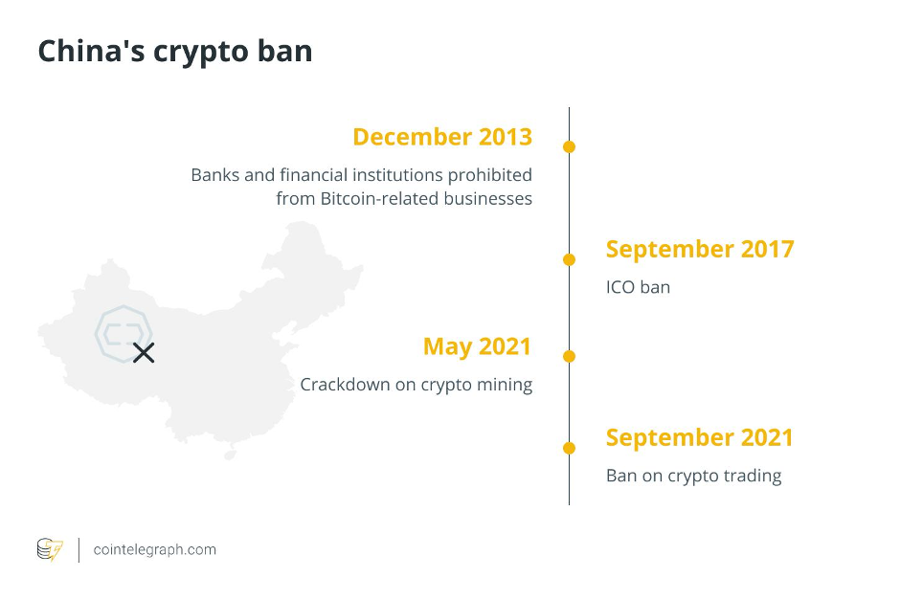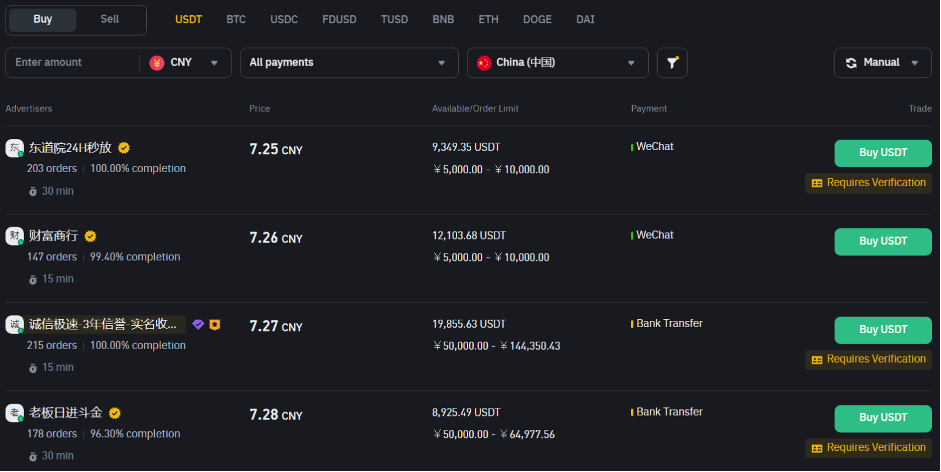China’s cryptocurrency consumers are fully aware of the restriction on trading cryptocurrencies. But they’ve managed to “get around this law,” so it’s not too hard to get cryptocurrencies in a nation with billions of citizens.
Public prohibitions on Bitcoin and other cryptocurrencies have been imposed by the Chinese government on several occasions. Bans on cryptocurrency offers, banks selling Bitcoin, exchanges, and cryptocurrency offerings were all implemented in 2013. In 2021, trading and mining will be outlawed. Consequently, it is not too difficult to obtain cryptocurrencies in a nation with billions of citizens.
China’s prohibition on cryptocurrencies hasn’t always been evident or practical. Even if it is illegal to trade cryptocurrencies, there are still ways for investors to get involved in the worldwide market.
Local dealers said that they trade on centralized exchanges like OKX and Binance to purchase and sell their bitcoins to other investors. These individuals may still access the websites and apps they require by using VPNs, even though China has “built a firewall” that blocks access to the aforementioned domains.
In China, Bitcoin is not totally illegal
In actuality, China does not have any laws against cryptocurrency. According to Chinese University law professor Mr. Robin Hui Huang, bitcoin exchanges are now operating in a murky area.
“In China, people are able to hold cryptocurrency,” he stated. They may even trade cryptocurrencies for other assets, but these exchanges are not covered by law, so there is no recourse if the other side breaks the agreement. Apply.”

While these transactions are not protected by the law, they are also not forbidden by it. Accordingly, Mr. Huang said, private persons may trade cryptocurrencies for other assets as long as they both agree to do so and keep their end of the bargain.
On the other hand, China’s central bank digital currency, or yuan digital technology, is one of the topics brought up and debated in terms of encouraging future usage during the Third Plenary Session of the Central Committee of the Communist Party of China, which is presided over by President Xi Jinping.
Apps for VNP and P2P trading are “KEY”
It goes without saying that Chinese cryptocurrency users are aware of the trading prohibition and have devised means to “get around” the rule. An authority on the topic stated: “Most cryptocurrency traders in the world are concentrated in China, however, no one talks about this because it is quite delicate.”

Peer-to-peer (P2P) trading channels enable users to purchase cryptocurrencies with yuan through bank transfers, WeChat Pay, or Alipay. These channels can be found on social media platforms or cryptocurrency exchanges.
Two well-known exchanges are OKX and Binance; in the China region, Binance even facilitates peer-to-peer yuan sales. However, users must utilize a VPN in order to access these programs.
China has a far more controlled Internet environment than the rest of the world when it comes to application access. This device, known as a “firewall,” prevents access to well-known websites like Facebook and Google, among others.
According to a cryptocurrency specialist, VPN use is now “second nature” for Chinese internet users. “Using a VPN is obvious if you want to access YouTube or Google,” the expert stated. This also holds true for more DeFi systems.
But giving consumers P2P access is a “gray area” for platforms. Regulators have the authority to audit such platforms or amend legislation. These platforms might not face legal action, but if they do not have legal backing, it will be very expensive.



